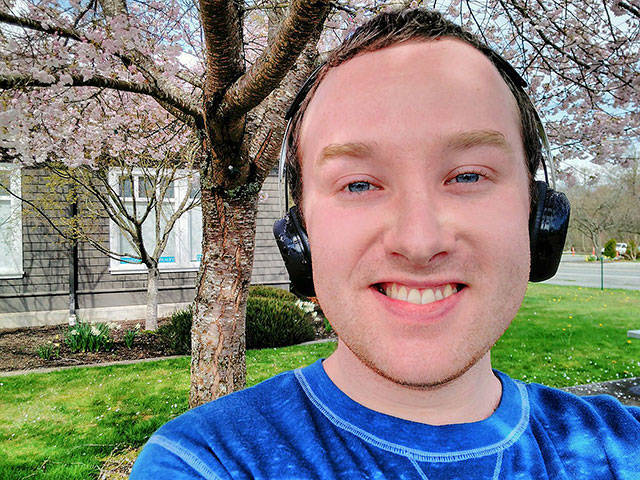Late one night in 1997, my father was awoken by heavy footsteps climbing the basement stairs. He laid still in bed, wondering if he was imagining it.
The wood creaked under one more tired step, drawing closer to the landing. And then another. And another… Was that soft brushing sound a hand feeling the wall for the light switch?
Somebody broke in, my dad thought. His heart pounding, he threw off the covers and rose out of bed.
He clutched a paperweight in his right hand, ready to lob a sucker-punch at the face of whomever he was about to meet in the hallway, and tip-toed toward the basement door. He gripped the knob, turned it and flung the door open, but found only darkness.
That’s my family’s ghost story, and hearing it told was the first time I can remember thinking about death. The generally accepted theory is that it was the previous owner of our house, who died of a massive heart attack in the laundry room and used to power on my toys after my infant brother and I were asleep. That included, most prominently in my mind, the voice-activated “My Pal 2000” robot companion, a two-foot-tall whizzing, battery-operated terror that started pitching Wiffle balls at my bedroom door one night at 3 a.m.
Life happened in the years that followed — we moved and got a dog, a much better friend than that haunted, plastic nightmare with more than 70 unique phrases and sounds. And while he was no good against anything lurking in the shadows, Riley the Beagle brought my family such closeness that the things that scared us didn’t seem so bad.
As time went on, my grandparents passed away. My dad worked behind the scenes helping to make arrangements, and we were left to remember both of them in better times and share those memories with each other.
But their passing, I’m almost ashamed to say, didn’t rattle me quite as much like Riley, the friend we lost far too soon, when we had to lay him down on an examination table and I pet his head until it was over. I was with death that afternoon. I turned my back to it, shunned it, and after we were separated from it by walls and windows we drove home in broken silence.
I felt a little squeamish when I first came on the scene here and wrote about the Vashon Conversation for the Living about Dying for The Beachcomber. The group formed soon after I began writing for the paper in 2018 by the organizers of Vashon’s former Death Café gatherings. Since then, they’ve hosted numerous meetings, most recently last week when Kathryn Crawford and Donna Klemka, island-based volunteers of the Seattle nonprofit End of Life Washington, presented about palliative care options and the state’s Death With Dignity Act.
I spoke with them and wrote a small story ahead of that event. We talked about how those who are ailing often have little or no control to make the choices and decisions guiding their own care in their final days and can easily lose hope; how many people are not aware of the options and services available at the end of life; and how having an advance directive written ahead of time stating clear intentions around one’s wishes can be a gift to family and friends when answers don’t come easily.
Compared to many in this community who are at peace with the inevitability of death and who seek to better understand it, I am not so at ease around the subject, especially in thinking about my own demise. For years I considered myself fortunate for the way death has occurred in my life, for the guises it has taken and the stories I can tell in its place, more like remembering dreams as I have gotten older. It’s my grandparents sitting on their lanai together, and the way my dog howled when I came home from school. It’s ghosts in basements and my adolescent wonder at extraordinary possibilities.
I don’t know for sure if there is an afterlife, but lives do go on after death, and I am trying to better appreciate that. After I wrote my story about End of Life Washington, I decided to look into writing my own advance directive. I think it’s a worthy exercise: To imagine what you would say if you could tell those you love what you wanted and how to remember you, how to let you go, sparing them from the agony over making difficult choices.
The organization makes it easy — the forms are available on their website — and you don’t have to rush. But I find some satisfaction in the idea of having a sort of foreward for my life, and you might too. It’s the next best thing, in my opinion, to a message from beyond, or a knock at the door in the middle of the night, letting you know that you’re not alone. This is the way I’d like the beginning of my story to be told. Trust me, it’s a good one.
Paul Rowley is a reporter at The Beachcomber.



